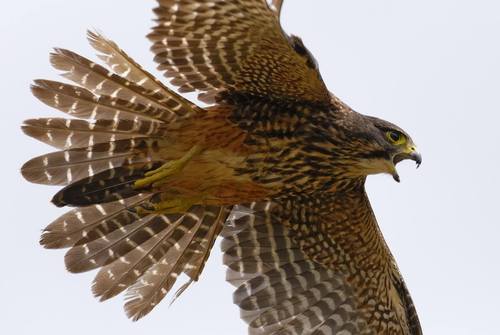The Widening Gyre
 Thursday, May 7, 2020 at 06:37AM
Thursday, May 7, 2020 at 06:37AM  THE WIDENING GYRE
THE WIDENING GYRE
Surely I’m not the only one in this pandemic rocked by the remembrance of Yeats poem. It seems way too prescient to be discounted as the musings of a deranged wordsmith. Read it again for yourself and draw your own comparisons. Every word and every phrase portend an ominous meaning for 2020 global society. Unsettling, to say the least.
The Second Coming
by William Butler Yeats
Turning and turning in the widening gyre
The falcon cannot hear the falconer;
Things fall apart; the centre cannot hold;
Mere anarchy is loosed upon the world,
The blood-dimmed tide is loosed, and everywhere
The ceremony of innocence is drowned;
The best lack all conviction, while the worst
Are full of passionate intensity.
Surely some revelation is at hand;
Surely the Second Coming is at hand.
The Second Coming! Hardly are those words out
When a vast image out of Spiritus Mundi
Troubles my sight: somewhere in sands of the desert
A shape with lion body and the head of a man,
A gaze blank and pitiless as the sun,
Is moving its slow thighs, while all about it
Reel shadows of the indignant desert birds.
The darkness drops again; but now I know
That twenty centuries of stony sleep
Were vexed to nightmare by a rocking cradle,
And what rough beast, its hour come round at last,
Slouches towards Bethlehem to be born?
The widening gyre suggests that man’s ingenuity, the accumulation and expansion of knowledge, can reach a point where it becomes uncontrollable. The science fiction scenes in which organic machines break from their human creators and chart their own independent course looks more and more like our present reality. Can we create a virus that cannot be corralled? Can we unleash a force so insidious that it laughs at our attempts to kill it? Can machines determine their own fate?
Admittedly, these are strange questions. And yet, they seem appropriate. Many in the scientific community have mulled over these same scenarios, but even with their misgivings, no one has slowed down the apparently inexorable march into the unknown. Ahh, the bold and daring venture to the frontiers of possibilities! So now, with this pandemic, are we experiencing the fears that some have reserved in the dark shadows of their minds? Surely some revelation is at hand.
Equally strange are the reactions of the very theorists who mapped out the progress of enlightened scientists and their expertise. Evolutionists may be about to jump into the arena of their own ideas. Indeed, isn’t one of the postulates of evolution “survival of the fittest?” The weak, the ill-equipped, the slow, the unevolved specimens fall prey to predators, to hostile conditions, to—as it were—pandemics. The robust survive, representing a breakthrough in the evolutionary journey. The less able generation fades, the more advanced generation thrives. In the Covid-19 case, however, the less fit are not going quietly. They want to observe evolution through a safe, theoretical window, preferably separated by a few million years of time. But they don’t want to actually be a part of it. Indignant desert birds.
So, pandemics happen. They come not as a moral constraint, but as a necessary physical tool of evolutionary progression. Of course, the “pandemic” does not have to be a virus or disease. It could be an ice age, volcanic action, a tectonic shift, a radical increase in temperature, a famine or the appearance of a more dangerous natural enemy that wipes out a certain population. Survivors manage to live through the widespread catastrophe because their DNA turned out to be a superior strain. This being the case, however, why wouldn’t scientists be delighted to participate in the change?
The creationist view holds that this is God’s creation. The calamitous voyage in which humanity now finds itself may be attributed to, in the words of Yeats, “anarchy being loosed upon the world.” Original sin has wound up in the hands of free moral agents. The Book of Revelation will wend its way to a cataclysmic end, and a pandemic—whether or not it is Covid-19 is not clear—will share in causing the disaster. Thankfully, our survival is not tied to our personal fitness or righteousness. “For by grace you have been saved through faith, and that not of yourselves; it is the gift of God, by grace are you saved.” Ephesians 2:8 (NKJV) Science may have gotten us into this mess, but it cannot get us out.
My hope is built on nothing less
Than Jesus’ blood and righteousness.
I dare not trust the sweetest frame,
But wholly trust in Jesus’ Name.
On Christ the solid Rock I stand,
All other ground is sinking sand;
All other ground is sinking sand

Reader Comments